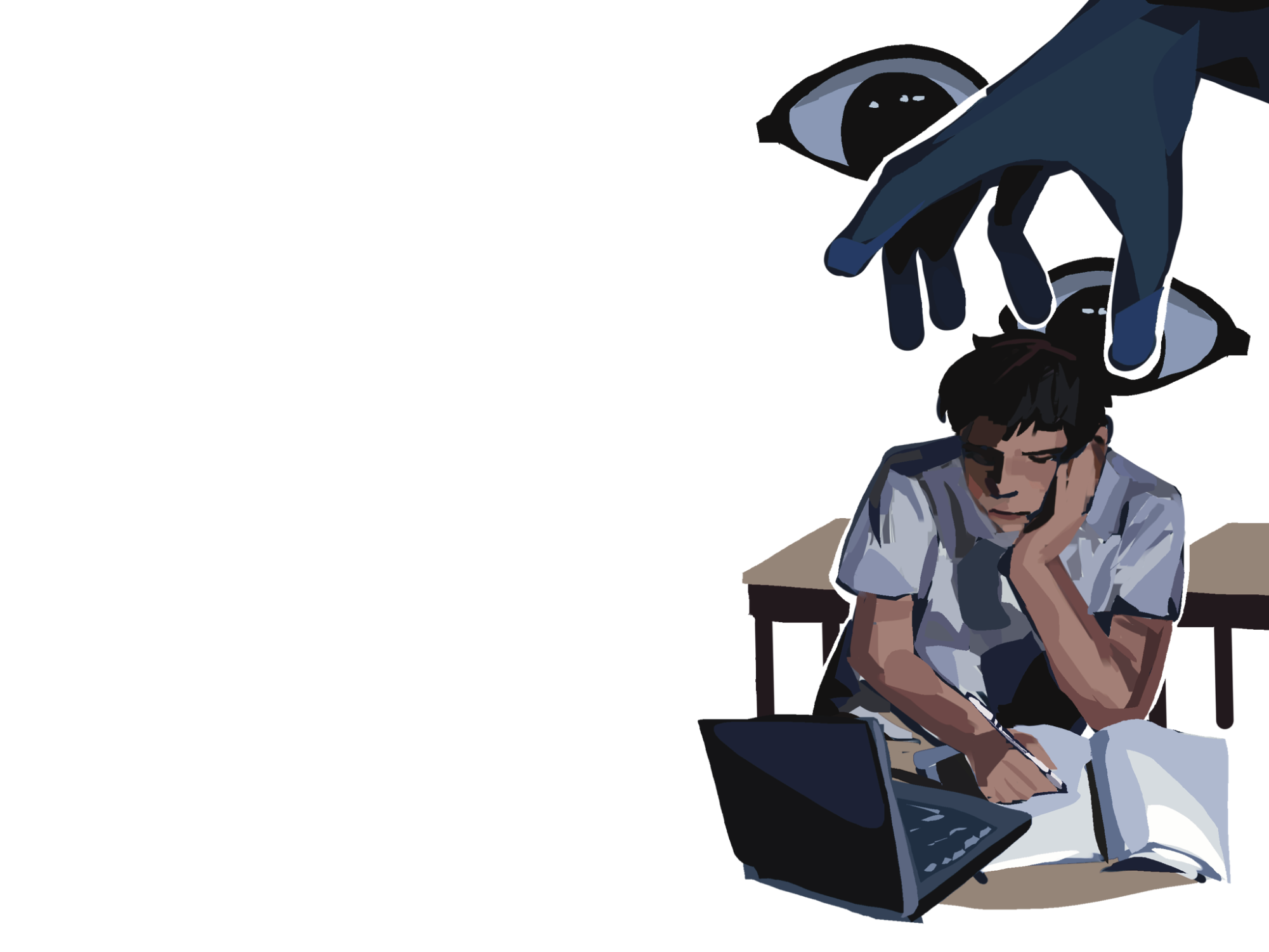California Senate Bill 274, which prohibits the suspension and expulsion of students from school in grades nine through 12 for willfully defiant behavior, goes into effect July 1.
This bill, also known as the “Keep Kids in School” bill, builds on existing Educational Code 48900, which covers suspendable offenses for all grades and prohibits willful defiance suspensions in kindergarten and grades one through eight.
The Assembly Committee on Education defines willful defiance as “disrupting school activities or otherwise willfully defying the valid authority of school staff.”
Assistant Principal Jerry Berkson, who is in charge of student discipline, said willful defiance can be applied to suspendable offenses not specifically listed in Ed Code 48900.
“It is a catch-all for general things where there’s a behavioral issue that really doesn’t fit quite into anything specific,” Berkson said. “A kid who’s getting in trouble in class for various reasons — that would be willful defiance.”
Palo Alto Unified School District Behavior Support Services Manager Nestor Ramos said he thinks the bill is trying to minimize the number of students being suspended for nonviolent acts. He also said he is worried that suspending students for willful defiance could lead to more students trying to get a special education classification so they would be harder to suspend.
Sponsors say SB274 is intended to alleviate the higher suspension rates for California’s African American, Latino, Native American and students with disabilities compared to other student populations.
The bill is also meant to address the correlation between school suspensions or expulsions and future incarceration, as sponsors say suspended or expelled students are five times more likely to later become imprisoned.
Ramos said PAUSD is actively working to ensure all students have the support and resources they need, and this bill will further those efforts.
“We are trying to build inclusionary practices and really trying to scream for students of various demographics,” Ramos said. “(We’re) just making sure that everyone has enough resources and support to try to minimize the likelihood of folks of certain demographics to fall into that (school-to-prison) pipeline.”
Berkson said, while suspensions at Paly have decreased from over 100 a year to less than 20 a year over his past 18 years at Paly, this may not be true for other schools.
“The laws have changed,” Berkson said. “I think people realize that maybe it’s a better idea for a kid to be in school than to not be in school.”
Berkson also said he thinks many schools will now have to rely more on restorative justice to handle students who constantly cause trouble at school.
“Restorative justice is the big thing now where there are restorative circles where you’re meeting up with the parties involved,” Berkson said. “They talk it out, and you restore the trust in the person. You restore the relationship with the person. (For) people who work in tough, tough schools, where students will know they can’t get suspended for (willful defiance) — I’m curious to see what that’s going to look like.”
And Ramos said this bill may cause his job to be different by changing the way the district handles students who repeatedly cause trouble at school.
“It would be really focusing on peer support and supporting students who are in additional needs if it comes down to repeated offenses of certain behavior,” Ramos said. “There are students who might engage in more frequent behaviors than others, so disciplinary data would be one piece (in determining consequences), but it would also be looking at students who have behaviors that compromise their own safety and safety of others and making sure that we’re able to support the safety of all students and staff alike.”
SB 274 will also prohibit the suspension or expulsion of students based solely on a student’s tardiness or truancy. However, Berkson said this part of the bill will not impact Paly since the school’s intervention system, which he said has been effective in decreasing the number of tardy students, prevents the need to suspend students for being late.
“The issue here is the kid is late to class all the time,” Berkson said. “Why do we want kids on time? Because we want them to learn. If we’re gonna suspend a kid for being tardy, it’s going to defeat the purpose of why we’re here in the first place, which is to teach.”
Berkson said although PAUSD already has many parts of SB 274 in place, the new policy may make it more challenging for other schools to deal with difficult students.
“It’s not necessary for us,” Berkson said. “I don’t even know if I agree with it because a student could really act out in class on a constant basis, not hit any of the other 48900s (suspendable offenses), and at some point, something’s got to happen. We aren’t in that position, but there are tough schools that I don’t know what they’re going to do.”


